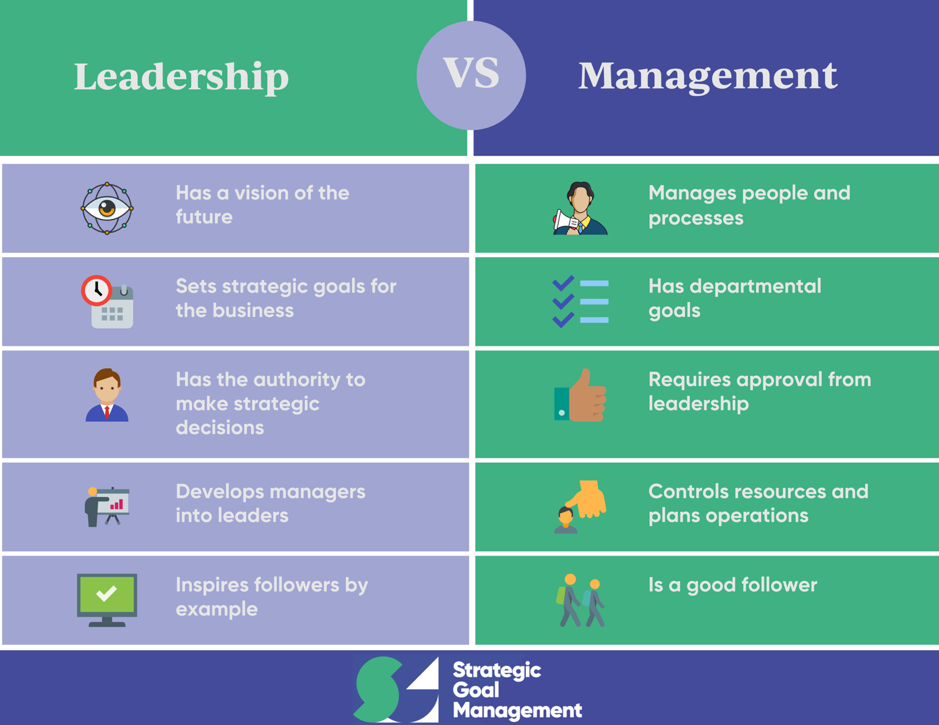Leadership & Management
Leadership and management when applied effectively can enhance your business significantly. In this section we learn the nuances and differences between leadership and management.
Management is closely linked to leadership; however, it is generally recognised that there is no substitute for leadership. If an organisation is led by respected leaders who have a vision, act with integrity, and inspire trust, they can set the tone for managers to follow.
Managers can still be leaders in their own right, and their day-to-day actions keep the organisation functioning through administration and control.
In this section, we explore leadership and management, what they are and how they differ from each other, and how they can contribute to business success.
Leadership vs Management
Good leadership is a must if you want your business to succeed.

The Definition of Leadership
Leadership has been referred to as:
‘The process of influencing the activities of an individual or a group in efforts toward goal achievement in a given situation.’
Hersey & Blanchard, (1988)
The Definition of Management
Management can be described as:
‘Getting things done through people by exercising leadership.’
Armstrong (2012)
There are numerous definitions of management, but a common theme emphasises leadership’s importance in achieving goals and tasks.

The Link Between Leadership and Management

Suppose we agree that the nature of management is to motivate and coordinate others to achieve organisational objectives. The similarities between leaders and managers and their respective roles can be challenging to differentiate.
Leadership and Management Goals

An easy way to classify leadership and management roles is to look at their respective goals and responsibilities. Organisational leadership sets the strategic goals for the whole company and sells the vision to management.
On the other hand, the management is responsible for critical deliverables achieved by planning and monitoring processes and people, generally at the department or business unit level. Management is still responsible for motivating their team members, and this is where the ability to manage is greatly enhanced through leadership.
It is a given that leadership and management interlink, and some managers are leaders. The organisation’s challenge is identifying and mentoring these quality individuals as a robust succession plan for the existing company leadership team.
What is the difference between Leadership & Management?
Good organisational leaders provide the company’s strategic direction, and the managers will maintain and control the procedures to facilitate the business strategy.
The nature of management is to motivate and coordinate others to achieve organisational challenges. This can be achieved by also leading, so you can see that leadership and management interlink and some managers are also great leaders.
The graphic shows some of the differences between managers and leaders.
Why is Management Important in Business?
The success of strategic plans of an organisation relies heavily on its management cohort. Good managers have an excellent understanding of the company’s vision and goals and are adept at managing resources and processes at the operational or tactical level.
Their management skill is turning words into reality by controlling the necessary business functions or departments in accordance with planned key performance metrics.
Good managers are also good leaders who can become future organisational leaders, provided they receive the necessary training, development, and mentoring.
We can help improve your Leaders and Managers
Strategic Goal Management has a strong track record of developing leaders and senior managers through tailored coaching and leadership programmes delivered by highly skilled business coaches and management consultants.
We help business owners, and leaders overcome their organisational barriers to success and significantly improve the performance of the individual and the business.

